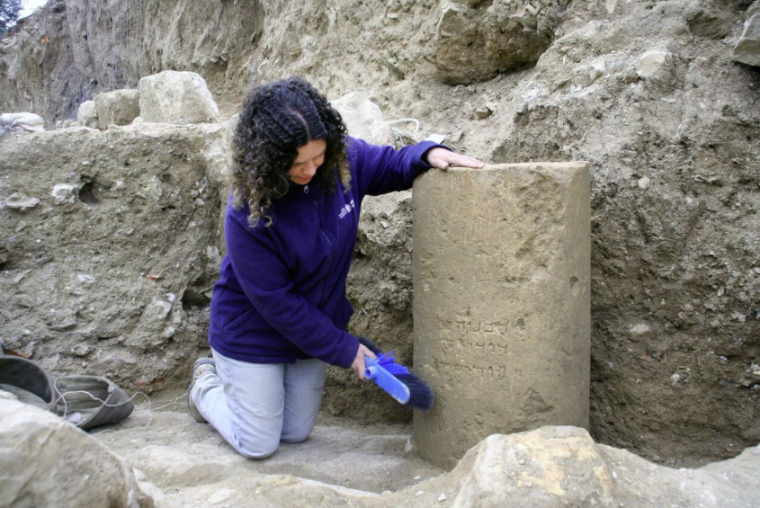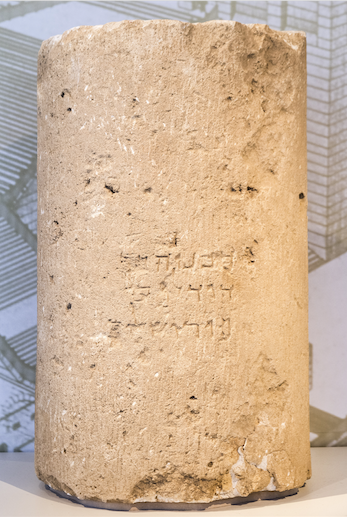Inscription found in Jerusalem is earliest ever record of city's name
A 2,000-year-old inscription has been unearthed in Jerusalem, the earliest ever found that gives the full name of the city.

The inscription was found last year in the district of Binyanei Ha'Uma during an excavation led by the Israel Antiquities Authority before the construction of a new road. During the excavations, the foundations of a Roman structure were revealed, supported by columns. Part of one of the columns, re-used from an earlier structure, features the inscription in Hebrew letters typical of the Second Temple period, around the time of Herod the Great's reign. It reads: 'Hananiah son of Dodalos, of Jerusalem.'

The inscription was presented today by the IAA and the Israel Museum, whose director Prof Ido Bruno said: 'As a resident of Jerusalem, I am extremely excited to read this inscription, written 2,000 years ago, especially when I think that this inscription will be accessible to every child that can read and uses the same script used two millennia ago.'
The name of Jerusalem usually appears in a shortened version, according to the IAA's Dr Yuval Baruch, who has studied the inscription. 'This is the only stone inscription of the Second Temple period known where the full spelling appears,' he said.
The area where it was discovered has been the site of many excavations, which have revealed a potters' quarter that produced vessels for Jerusalem during a period of around 300 years. Evidence of kilns, pools for preparing clay, plastered water cisterns, ritual baths and work spaces for drying and storing vessels has been found.
According to Dudy Mevorach, chief curator of archaeology at the Israel Museum, 'the archaeological context of the inscription does not allow us to determine where it was originally displayed, or who Hananiah son of Dodalos was.
'But it is likely that he was an artist-potter, the son of an artist-potter, who adopted a name from the Greek mythological realm, following Daedalus, the infamous artist. It is interesting that he decided to add his origin from nearby Jerusalem to his family name.'











